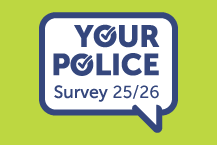Human Trafficking
Click here if you want to navigate away from this page quickly.
Information about human trafficking, how to spot the signs and report it.
On this page:
What is human trafficking?
Human trafficking is the illegal trade in human beings for financial gain. This includes both adults and children.
Victims of human trafficking are often the most vulnerable members of our communities. However, there is no such thing as a typical victim.
Victims come from various continents, in particular Asia, Africa and Europe. UK nationals can also be victims of human trafficking.
A trafficking victim does not have to cross international boundaries. They can be moved from one place to another in Scotland or the UK for exploitation.
They may arrive in Scotland after being abducted or smuggled. They may be forced into criminality or tricked by a job and the prospect of a new and better life.
They soon find out that their lives are not their own and are forced into a life of exploitation. There is often no way of escaping.
Trafficking victims are typically forced into:
- prostitution
- exploitative labour
- the illegal drugs trade
- begging
- domestic servitude to pay back debts that the traffickers claim they are owed.
Victims are trapped and aren't free. They have their identity documents removed and are physically and sexually abused.
Human trafficking exists in communities across Scotland and also can involve people who are legally resident in the country.
The illegal industry of trafficking people has become so sophisticated that it often goes unnoticed.
Help from the public is crucial to identify potential signs of human trafficking within the community and reporting any concerns to the police.
Signs of human trafficking
Human Trafficking is happening here and now in Scotland.
Look for the signs:
Sexual exploitation
- Many foreign women living together
- The women may change regularly
- Occupants are rarely seen outside
- The women may be chaperoned by men or other women when outside
- Men come and go at all hours and only stay for only a short time
- Sexual items such as condoms, call cards or adverts can be found close by.
Forced labour and domestic servitude
Migrant workers may be exploited through industries such as agriculture, factories, hotels and restaurants.
Look for the signs:
- Many foreign nationals living together
- Occupants change regularly
- Transported at unusual times of the day and/or night
- The workers movements are monitored and controlled
- Workers may seem fearful of employers, police or any other external agencies
- Workers have no days off or holiday time
- Workers show signs of physical abuse such as bruises, cuts and signs of untreated medical problems
- Workers show signs of malnutrition, dehydration, exhaustion and poor personal hygiene.
Domestic servitude is a form of modern slavery. This is where an adult or child is forced to be a servant.
Look for the signs:
- The person is rarely allowed out of the house
- They don't have a proper place to sleep, so sleep on the floor or sofa
- They have a poor diet
- They are subject to mental, physical, sexual abuse, threats or other cruelty
- A child might have a poor attendance at school and have no time to play with their friends.
Reporting human trafficking
If you suspect there are people who have been trafficked into your community or you have concerns about an adult or child who you think may be being exploited, please report this to Police Scotland on 101.
In an emergency always dial 999.
You can also use our online Contact Form.
You can contact Crimestoppers on 0800 555 111. Your call will be treated in confidence.
You can report via the Modern Slavery helpline on 08000 121 700 or on the Modern Slavery helpline website.
Related links
Unseen App provides a guide to spotting the signs of modern slavery and human trafficking.
Click here if you want to navigate away from this page quickly.






